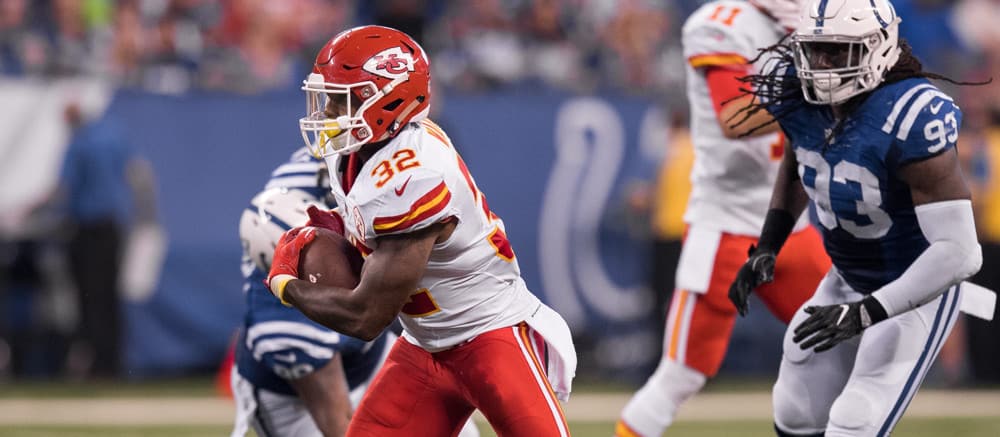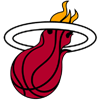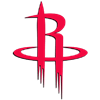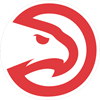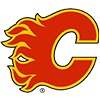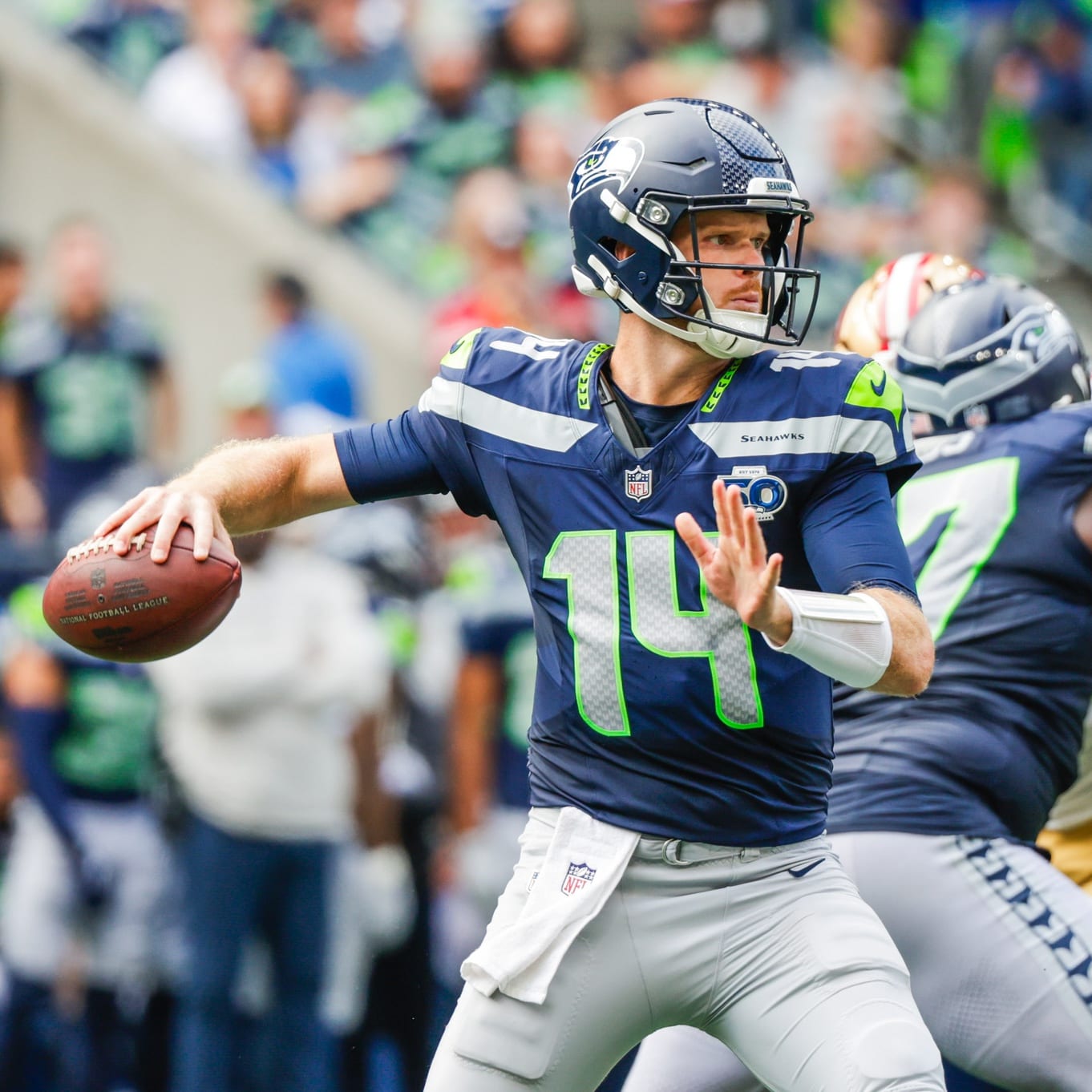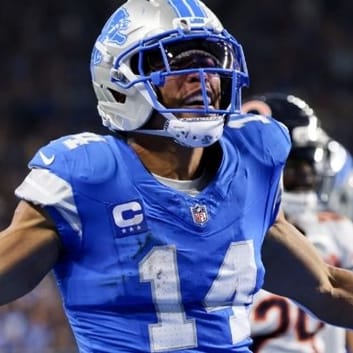This weekend marks the return of Tom Brady to magically lead the Patriots to another Super Bowl. For the last four grueling weeks, fantasy owners have been waiting for the savior's return. I am such an owner.
Waiting for a player to return from time off can test an owner's patience. Additionally, knowing your productive player is soon to be replaced can be discouraging unless you completely understand the entire range of outcomes.
This week, I am going to step through how to correctly evaluate players missing time because of injury or suspension and their replacements.
The discussion is brought to you by BrianPoindexter when he mentioned the following in the comments from last week's article:
Jeff - I've got a question I've never seen really explored before. It focuses on the value of drafting a player like DeAngelo Williams or Spencer Ware (not as a handcuff). Every year there are a couple players - usually backs - who will be Top 5 at their position for only a few weeks until the bell cow returns. Usually, these players are drafted in Rounds 6-10, and therefore we see them as a similar value to players like Rashad Jennings, who will almost always be in Top 30, but rarely if ever a Top 5 play. I've always wondered - what's the value of having a Top 5 player for a limited period of time? My hypothesis is that we undervalue them because Top 5 players increase our chances of
This weekend marks the return of Tom Brady to magically lead the Patriots to another Super Bowl. For the last four grueling weeks, fantasy owners have been waiting for the savior's return. I am such an owner.
Waiting for a player to return from time off can test an owner's patience. Additionally, knowing your productive player is soon to be replaced can be discouraging unless you completely understand the entire range of outcomes.
This week, I am going to step through how to correctly evaluate players missing time because of injury or suspension and their replacements.
The discussion is brought to you by BrianPoindexter when he mentioned the following in the comments from last week's article:
Jeff - I've got a question I've never seen really explored before. It focuses on the value of drafting a player like DeAngelo Williams or Spencer Ware (not as a handcuff). Every year there are a couple players - usually backs - who will be Top 5 at their position for only a few weeks until the bell cow returns. Usually, these players are drafted in Rounds 6-10, and therefore we see them as a similar value to players like Rashad Jennings, who will almost always be in Top 30, but rarely if ever a Top 5 play. I've always wondered - what's the value of having a Top 5 player for a limited period of time? My hypothesis is that we undervalue them because Top 5 players increase our chances of winning an entire week, and winning weeks is the objective of the whole game.
The key term he is looking for is to find a player's replacement level value. How much total value should be placed on a player when he is guaranteed to miss time?
Let's start with BrianPoindexter's Spencer Ware/DeAngelo Williams example. With each example, one needs to have an idea of the expected production from each player. Trying to find a nice middle ground is a little hard with this pair since Ware was shared time last year and Williams got hurt this season. For their projections, I will use 13 standard fantasy points for Ware and nine for Williams.
Next, we have to find out how much time a player is to miss. This is an inexact science when it comes to injuries. I will step through it for the possible time Charles would miss.
The expectation entering the season was that Charles would eventually take over the feature running back role, but when it would happen was up in the air. In March, the team reported he would be 100 percent ready for training camp, but as spring turned into summer it became obvious he would miss more and more time. By the time of most drafts, owners knew Ware was going to be productive, but for how long? Probably two weeks missed would be a nice minimum target with eight weeks not being unreasonable on the long end.
When I hear about a player being behind in their recovery, I don't always think the player is still dealing with the injury. Instead, the player has just not gotten back to their previous level of health and might never get close again. I would love to test this theory at some point if I can get a decent list of injuries. As a side note, I am worried Charles is not 80 percent of his old self and I would keep Ware around as a option.
Getting back to the comparison, one could have assumed Charles would miss two to eight weeks and go with an average of five games, which is where we currently stand. So Ware gets four weeks as the feature back (one less because of a bye week).
So over the first four weeks, Ware gets an additional 16 fantasy points vs. using Williams those weeks ( 4 weeks * (13 points/week from Ware – 9 points/week from Williams)).
Sadly, the easy part is done. The next key is to find your replacement back for Ware since Charles will then take over. The replacement back you need to target needs to project to score just barely less than eight points a week.
Williams' total = 9 * 16 = 144
Ware + Replacement Back = 13 * 4 + 8 *12 = 148
Now each owner needs to determine if he can find an eight-point per week replacement from their bench or the waiver wire. If a suitable productive player can be found, great, go with Ware. If not, Williams is the right choice. Using Week 5 as an example, such running backs include Giovani Bernard, Duke Johnson and Fozzy Whittaker.
Normally, this decision on which of the two to pick will come down league size. The deeper the league, the less the opportunity exists to pick up a productive replacement in the draft or on the waiver wire. In shallower leagues, more options will be available, so taking a chance on Ware is a better option.
During the season, it is fairly easy to find the replacement level because it is the production from the best waiver-wire options. Before the season, a little more work needs to be done. The simplest way I have found to get the replacement level is to figure out the number of players to be drafted. Rank the all the players by ADP and then look at the players available if the top ones are drafted.
For example, if 150 players are drafted, rank the players by ADP and then go after the 150th player to find your replacement level. Don't look at the average ADP value — these can be deceiving with some of the later players never getting drafted. Simply, you want to remove the players most likely to be picked up and then get the average projected production from the top remaining players. This value is the league's replacement level.
I will step through one more example. I targeted Tom Brady in quite a few shallow drafts. I knew he would miss the four weeks, but in shallower leagues, I knew I could match him up with a decent sub. In one case it was it was Blake Bortles. Bortles is nearly a 20 point per game player. Brady, on the other hand, is more of 25 point per week passer. Their combined season total points should be:
380 points = 20 points per game from Bortles * 4 games + 25 points per game from Bortles * 12 games
So 380 total points or ~24 points per week.
The combination was basically just a step below Brady production. The bonus with Brady is that he is supposedly healthy and should be available for the fantasy league playoffs. I saw Brady getting too much of a discount and figured he was a nice value play on draft day.
Hopefully, I did a good enough job of explaining the concept of replacement level. It is not the easiest topic to understand, so please ask questions. Additionally, let me know if you have any other concepts you would like to have me test out and/or explain.


